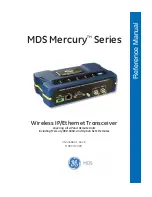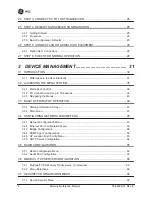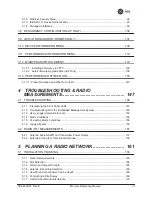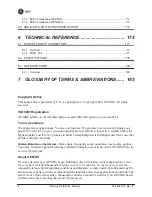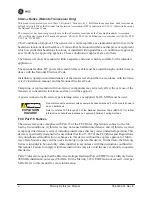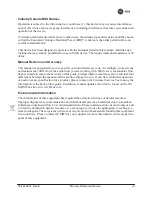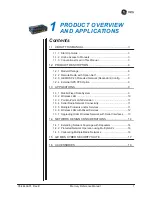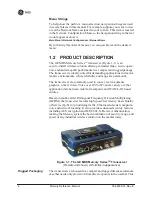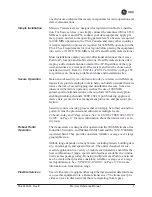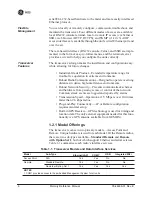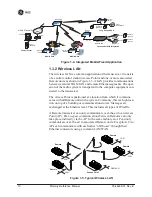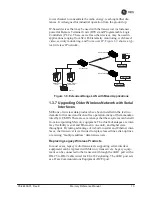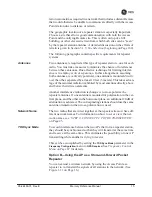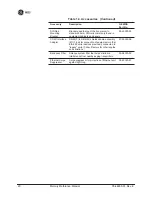
05-4446A01, Rev. E
Mercury Reference Manual
5
one enclosure contains all necessary components for radio operation and
data communications.
Simple Installation
Mercury Transceivers are designed for rapid and trouble-free installa-
tion. For basic services, you simply connect the antennas (900 or 3650
MHz as required, and GPS), connect your data equipment, apply pri-
mary power, and set some operating parameters. No license is required
for 900 MHz operation in the USA, Canada, and many other countries.
A simple registration process is required for 3650 MHz operation in the
USA. Check requirements for your region before placing the equipment
into service. (NOTE: 3650 MHz is for APs and Fixed Remote stations.)
Most installations employ an omni-directional antenna at the Access
Point (AP) location and mobile stations. Fixed Remote stations often
employ a directional antenna aimed at the AP. Regardless of the type
used, antennas are a vital part of the system and must be chosen and
installed correctly. Refer to
INSTALLATION PLANNING on Page 163
for guidance on choosing suitable antennas and installation sites.
Secure Operation
Data network security is a vital issue in today’s wireless world. Mercury
transceivers provide multiple tools to help you build a network that min-
imizes the risk of eavesdropping and unauthorized access. Some are
inherent in the radio’s operation, such as the use of 900 MHz
spread-spectrum transmissions; others include AES data encryption,
enabling/disabling channels, IEEE 802.1X port blocking, approved
device lists, secure devices management protocols, and password pro-
tection.
Security is not a one-step process that can simply be turned on and for-
gotten. It must be practiced and enforced at multiple levels,
24 hours-a-day and 7 days-a-week.
See “GE MDS CYBER SECURITY
SUITE” on Page 17
for more information about the transceiver’s secu-
rity tools.
Robust Radio
Operation
The transceivers are designed for operation in the 900 MHz license-free
Industrial, Scientific, and Medical (ISM) band and the 3650-3700 MHz
registered band. They provide consistent, reliable coverage over a large
geographic area.
Mobile range depends on many factors, including terrain, building den-
sity, antenna gain, and speed of travel. The unit is designed for suc-
cessful application in a variety of mobile environments, and offers the
best combination of range, speed and robustness available in an indus-
trial wireless package today. By using multiple Access Points, a network
can be created that provides consistent, reliable coverage over a large
metropolitan area.
See “SPECIFICATIONS” on Page 178
for more
information on transmission range.
Flexible Services
Users with a mix of equipment having Ethernet and serial data interfaces
can use this equipment via a Remote transceiver. The transceiver pro-
vides services in data networks that are migrating from legacy
Summary of Contents for Mercury 3650
Page 9: ...viii Mercury Reference Manual 05 4446A01 Rev E ...
Page 11: ...2 Mercury Reference Manual 05 4446A01 Rev E ...
Page 31: ...22 Mercury Reference Manual 05 4446A01 Rev E ...
Page 155: ...146 Mercury Reference Manual 05 4446A01 Rev E ...
Page 157: ...148 Mercury Reference Manual 05 4446A01 Rev E ...
Page 171: ...162 Mercury Reference Manual 05 4446A01 Rev E ...
Page 185: ...176 Mercury Reference Manual 05 4446A01 Rev E ...
Page 201: ...192 Mercury Reference Manual 05 4446A01 Rev E ...

